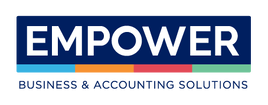The easiest way to ensure that business tasks are done consistently, accurately and on a timely basis is to implement checklists. A very simple tool, but very powerful when it comes to managing a business day-in and day-out, ensuring staff are always productive.
Consider the productivity gains and the positive impact for your business when you introduce checklists into your operations.
Organising and Prioritising work: Checklists help organize tasks and prioritize them. This ensures that essential activities are addressed first, improving overall efficiency.
Reduced Errors and Oversights: Having a checklist reduces the likelihood of forgetting crucial steps or details, minimizing errors and oversights in various processes.
Consistency in Operations: Workflows provide a standardised approach to tasks, ensuring consistency in how different team members handle similar activities. This consistency is vital for quality control.
Time Management: Clear workflows help in estimating the time required for each task. This allows for better time management and scheduling, preventing bottlenecks and delays.
Task Delegation: Checklists aid in the delegation of tasks. Team members can easily understand what needs to be done, reducing confusion and improving collaboration.
Training and Onboarding: Workflows serve as valuable training tools for new employees. They provide a step-by-step guide to processes, facilitating faster onboarding and reducing the learning curve.
Improved Communication: Clearly defined workflows enhance communication within the team. Team members can easily understand their roles, dependencies, and the overall progress of a project.
Adaptability and Scalability: Well-designed workflows can be adapted to changing circumstances and can scale as the business grows. They provide a foundation for efficient operations even during periods of expansion.
Identifying Inefficiencies: Regularly reviewing checklists and workflows allows businesses to identify areas for improvement and optimize processes for increased efficiency.
Employee Empowerment: Having structured workflows empowers employees to take ownership of their tasks. It provides a sense of structure and direction, fostering a positive work environment.
Look out for our next blog on how to practically implement check lists into your business.

